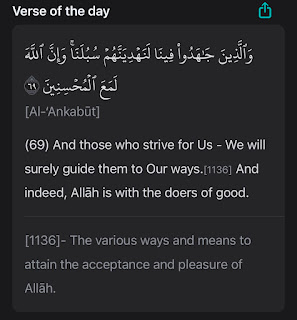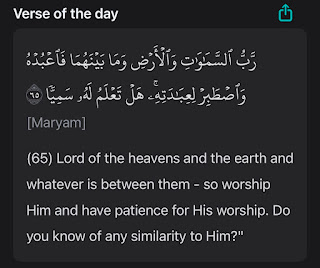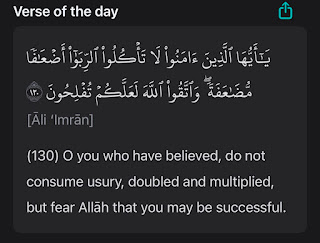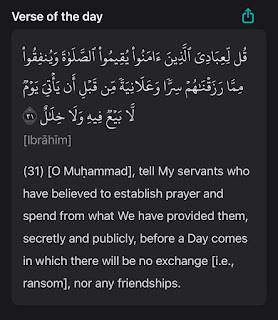H 11, Ch. 1, h 11 A number of our people has narrated Ahmad ibn Muhammad ibn Khalid from certain persons of his people in a marfu‘ manner from the Holy Prophet (s.a) who has said the following. "Allah has not distributed anything among people more excellent than intelligence. The sleeping of a person of intelligence is better than the worshipping of an ignorant person for the whole night. Staying of a person of intelligence at home is better than the journeying of an ignorant person in search for success and good deeds. Allah did not sent any prophet or messenger before the completion of his intelligence and to let it become better than the intelligence of all of his followers. Whatever a prophet preserves in his soul is better than the achievement of all the striving people for virtue and good deeds. People would not fulfil their obligations to Allah without having an understanding about Him. All the worshippers will not be able to achieve with the virtue of their worships what a person of intelligence achieves. It is the people of intelligence who are considered as people of proper understanding in chapter 2:269 of the holy Quran, "Only People of understanding realizes this."
Sunday, December 29, 2024
Monday, December 23, 2024
Wednesday, December 4, 2024
A New Modern Hero
In a quiet mountain village in modern-day Dagestan, where the air carries the whispers of ancient legends and the rivers flow with the strength of forgotten warriors, a young man named Aslan emerged from the shadow of his ancestors. Aslan, the great-great-great-great-grandson of Hadji Murat, bore an uncanny resemblance to his famed forebear—the piercing hazel eyes, the aquiline nose, and a presence that commanded attention before he even spoke. But it wasn’t just his appearance that drew comparisons; Aslan shared his ancestor’s courage, integrity, and a relentless drive to challenge authority when injustice reigned.
From a young age, Aslan had heard the stories. His grandmother would sit by the fire and speak of Hadji Murat’s legendary stand against both the Russian Empire and the tribal rivalries of his homeland. “He was a man of principle, Aslan,” she would say, her voice filled with both pride and sorrow. “A lion among wolves, torn between duty to his people and loyalty to his own heart.”
Unlike his ancestor, however, Aslan’s battleground was not war but the corruption and oppression that had seeped into his village. The local government, entangled in a web of bribes and deceit, siphoned funds meant for schools and hospitals. The villagers lived in quiet despair, their spirits broken by decades of neglect. Aslan, however, could not abide it.
One day, he stood in the village square, a lone figure against the backdrop of crumbling buildings and weary faces. “My people,” he called out, his voice steady and strong, “we are the descendants of those who stood tall against empires. Are we to bow now before petty men who steal from us? Let us remember who we are.”
The villagers, inspired by his words, began to rally. Aslan, much like Hadji Murat, walked a fine line. He petitioned the government, exposing their corruption with irrefutable evidence, but he also knew when to use the strength of his people to demand justice. Peaceful protests, letters to international human rights organizations, and a growing network of allies soon made Aslan a figure to be reckoned with.
Yet, as with his ancestor, Aslan’s fight came at a cost. The corrupt officials sought to silence him, and one dark night, a group of masked men ambushed him on the mountain trail. But Aslan was prepared. Drawing upon the stories of Hadji Murat, who had once escaped betrayal with cunning and bravery, he used the terrain to his advantage, evading his attackers and leading them into a trap set by his supporters.
The story of Aslan’s escape spread quickly, and the government, fearing further unrest, finally conceded. Funds were restored to the village, new schools and clinics were built, and Aslan became a symbol of hope and resilience not just in his village, but across the region.
Years later, as Aslan stood at the grave of Hadji Murat, he felt the weight of history upon him. “I am your blood, but I am also your legacy,” he whispered. “The fight continues, but so does the hope.”
Aslan’s story, like that of his ancestor, became legend—a tale of one man’s courage against the tides of oppression, proving that the spirit of Hadji Murat still lived on in the mountains of Dagestan.
Monday, November 25, 2024
Tuesday, November 12, 2024
20 Oversights of Christian churches
1. Prosperity Gospel
Emphasizing wealth as a sign of divine favor can overshadow core teachings on humility and service to others.
2. Division and Denominationalism
Christianity has fragmented into thousands of denominations, which can foster division and competition instead of unity.
3. Neglect of Social Justice
Some argue that the church has been slow to address issues like poverty, racism, and inequality, focusing instead on doctrinal purity or personal salvation.
4. Scandals and Cover-Ups
Numerous high-profile abuse cases and subsequent cover-ups have led to disillusionment and loss of trust among believers and non-believers alike.
5. Inflexibility in Modern Ethics
Many churches are seen as rigid regarding issues like LGBTQ+ rights, gender equality, and reproductive health, leading to accusations of intolerance.
6. Focus on Afterlife Over Present Life
A heavy focus on salvation and the afterlife can sometimes cause churches to neglect the importance of life here and now, especially in addressing suffering and injustice.
7. Misuse of Religious Authority
Some leaders have abused their authority, leading congregations toward authoritarianism rather than empowering them.
8. Limited Role for Women
Many churches restrict women from leadership roles, which some argue is outdated and unreflective of gender equality.
9. Commercialization of Faith
The rise of televangelism, religious merchandise, and megachurches has sometimes turned faith into a business, which can be off-putting to genuine seekers.
10. Lack of Interfaith Dialogue
Some churches have shown limited interest in understanding or engaging with other religions, which can contribute to intolerance or misunderstanding.
11. Inadequate Mental Health Support
Churches are sometimes ill-equipped to handle mental health issues, often emphasizing spiritual solutions over psychological support.
12. Historical Complicity in Colonialism
Christianity played a role in colonialism and the oppression of indigenous populations, often merging with imperial agendas.
13. Overemphasis on Rituals and Dogma
A focus on rituals or specific beliefs can sometimes overshadow the central message of love, compassion, and forgiveness.
14. Resistance to Scientific Discoveries
Some churches have a history of opposing scientific advances (e.g., evolution, climate science), creating a perceived conflict between faith and reason.
15. Cultural Insensitivity
Christian missions sometimes impose Western norms on non-Western cultures, leading to accusations of cultural imperialism.
16. Failure to Engage Youth
Many young people feel disconnected from traditional church practices, resulting in a decline in church attendance.
17. Limited Response to Environmental Issues
While there’s a growing Christian environmental movement, some churches still neglect ecological concerns, despite a theological basis for stewardship of the Earth.
18. Overly Simplistic Moral Teaching
Some churches present moral issues in black-and-white terms, which can alienate people facing complex life situations.
19. Selective Reading of Scripture
Critics argue that some churches selectively emphasize certain biblical passages while ignoring others that call for compassion and social justice.
20. Failure to Address Systemic Issues
Some churches focus on individual sin and salvation but pay less attention to structural sins, like systemic racism, economic inequality, and political corruption.




























































